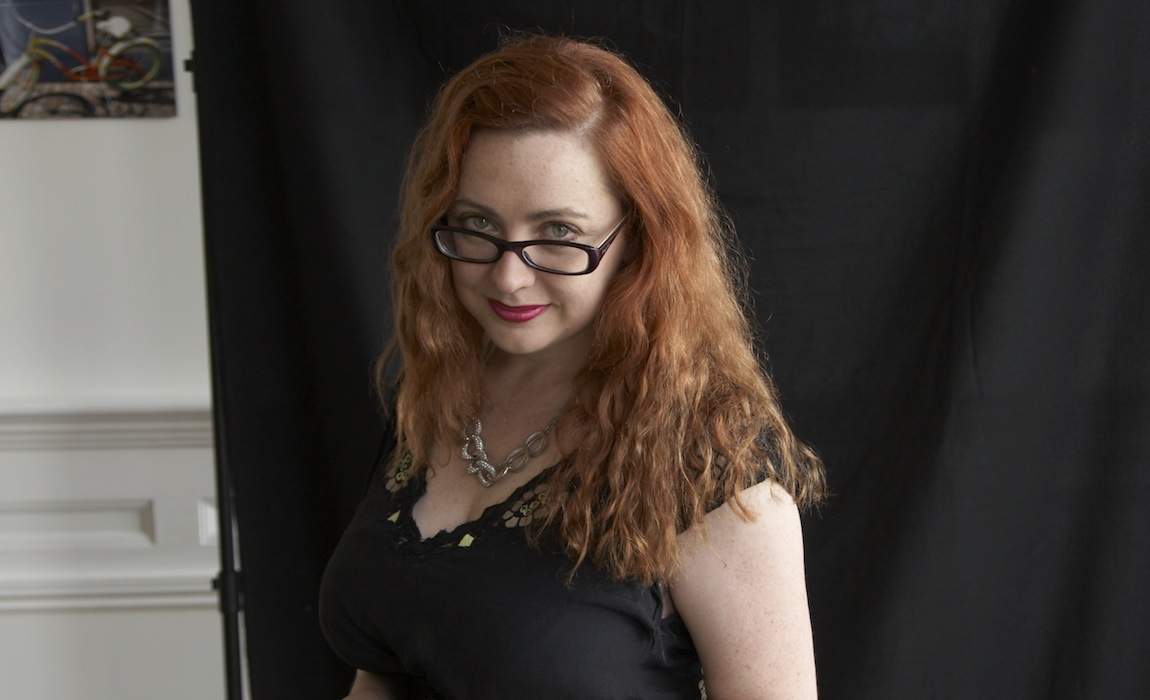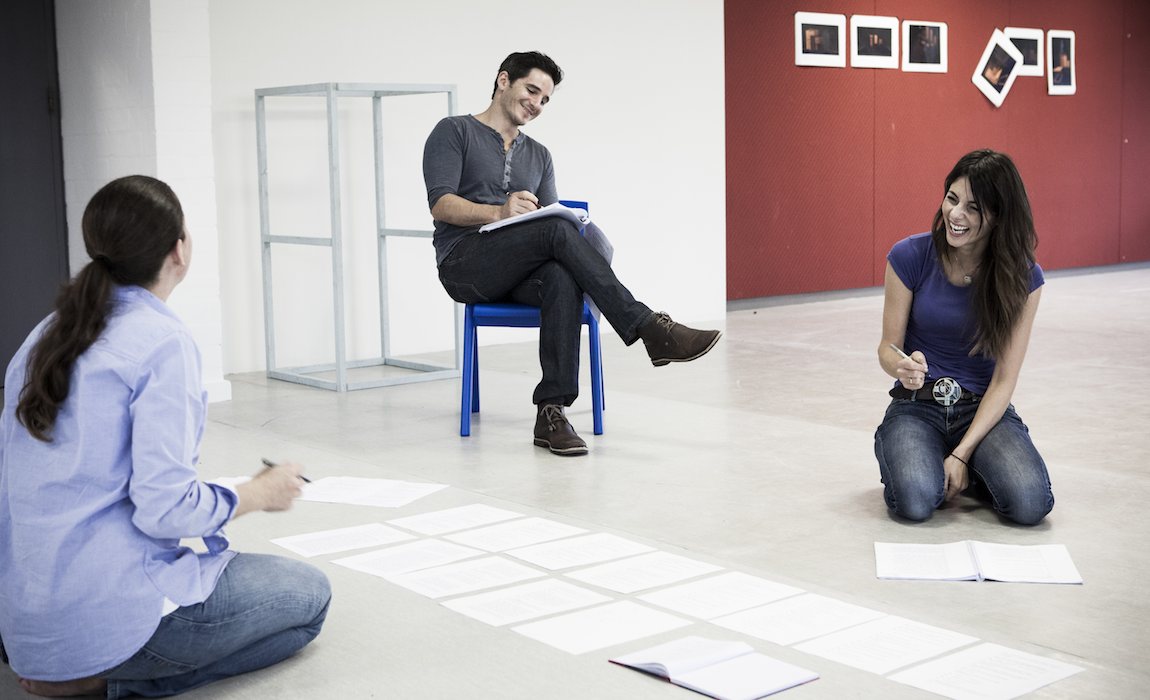Concrete Playground Meets Playwright, Feminist and Twitterer Van Badham
Her new play injects smarts into the rom-com genre.
Australian playwright Van Badham is known for her political, sometimes violent plays. Now, after a relationship breakdown and drawing on inspiration from a relic of Ancient Greek pottery in the Ashmolean Museum, she has written a romantic comedy. Based on the Minotaur myth, The Bull, the Moon and the Coronet of Stars is the story of two museum staff whose romantic frisson gets them into a bit of a tangle. With a mix of wordplay, humour and romance, Badham believes she's found a feminist way into a traditionally fluffy genre. This co-production between Merrigong Theatre and Griffin has already received glowing reviews following its premiere in Wollongong and is set to woo Sydney audiences in early May.
We chat to Van about feminism, classics and the Minotaur.
So, you wrote a play!
I wrote a play!
Tell me a bit about it.
So, about two years ago, in 2011, I was asked to write an audio play based on a piece of pottery held in the collection at the Ashmolean Museum. It was an extraordinary commission; it was funded by the Onassis foundation, which supports a program at Oxford that promotes classical Greek literature and drama. I got this piece of pottery that had a man and a bull and I thought 'wow, that's pretty interesting', because I was mad about Greek myth as a child and I decided I would write something about the Minotaur.
So you pulled a whole play out of a shard?
The hook with the story was the idea of a museum and what a museum represents, which is the bricolage and mess of the past, the discarded remnants. And it's the discarded remnants that tell you a lot more about a civilisation than its official history. I was in the dying days of a long-term relationship at the time so I was thinking about relationships a lot and it all coalesced into this story, about two people who work in a museum, one of whom is married, and the attraction between them conjures a monster. That is what the Minotaur represented to me, a symbol of misplaced desire and a transgression — a mythological exploration of the Minotaur.
So can we talk a bit about myth and classics more generally? Obviously in your case you were commissioned to write a play about a Greek myth so there's a clear starting point, but I have a suspicion that playwrights use classics as a way of tacking on intellectual heft to their plays.
No, it's not about intellectual heft. The reason why theatre makers do revert to classical drama and adaptations is that it's very fucking hard to write a play and it's hard to write a play structurally. It's very hard to get it right where you combine spoken verbal language that has semiotic heft as well as create that uncanny valley of interpretability for an actor in performance as well as hooks, mysteries, stories and climactic patterning.
So using classics is fine then as a helping hand?
Yeah, investing an original structure in any form of literature is very hard. That's the actual challenge. And there's that theory that says there are only nine stories and everything else is a variation.
Okay, but shouldn't that be taken as read? That classics will inform all new original works, rather than explicitly basing dramas on classics?
Yeah, but realistically, one of the reasons that adaptations are so popular is that they sell tickets.
I think that's what Australian audiences adore, going to a show and going 'great, I'm getting cultural cache because one, it was entertaining and two, it ticked the intellectual box of being based on a classic.'
Well, this is the thing. Now that I work in programming, I can really see that brand recognition is how people make buying choices and the theatre is not spared from that.
I wonder if that makes Australian playwrights scared of doing a straight-out original work that could one day be a classic in its own right.
I don't think that's the issue at all. I think it gets back to fact that it's really damn hard to write a very good play. I mean my job at the Malthouse is to read plays. And good writing, brilliant writing is rare. In the time that I was at the Finborough, of the two thousand plays I read I recommended three for production. Three! It's really hard to write a classic.
So knowing how hard it is as a playwright, what drives you? You're known as a political playwright, but this play is a romantic comedy...
Yes it's a romantic comedy but it's a feminist play. It's about a woman whose real journey is about surviving desire and I don't think I've let women down by writing a play about that. It fulfills all the genre obligations of a romantic comedy but at the same time, I hope, based on my rather extreme level of knowledge in terms of the number of plays I've read in the past few years, I'm pretty close to something that is original in form and content.
Ariadne is the female romantic lead in your play and she's defined by her romantic relationship first with Theseus and then with Dionysus. How do you balance this identity with your feminist project?
Do you know what's amazing? Is that feminists, some of them, have relationships with men! And they can be really complex. And if you look at the genre of a romantic comedy in a patriarchal paradigm, generally it works with a woman having to make herself more attractive to the masculine ideal of what women should be like.
And you've found a way around that?
Well, this is what I try to do. My feminist project is to attack that [patriarchal] narrative whilst at the same time working within genres that are associated with women and women's enjoyment. It's romantic and funny, there are some language games in it that are clever and funny that I'm really proud of. It's about the subjective experience of desire and of love and that is quite intoxicating.
The Bull, the Moon and the Coronet of Stars is at Sydney's SBW Stables Theatre from May 2 to June 8. More information and tickets here.







